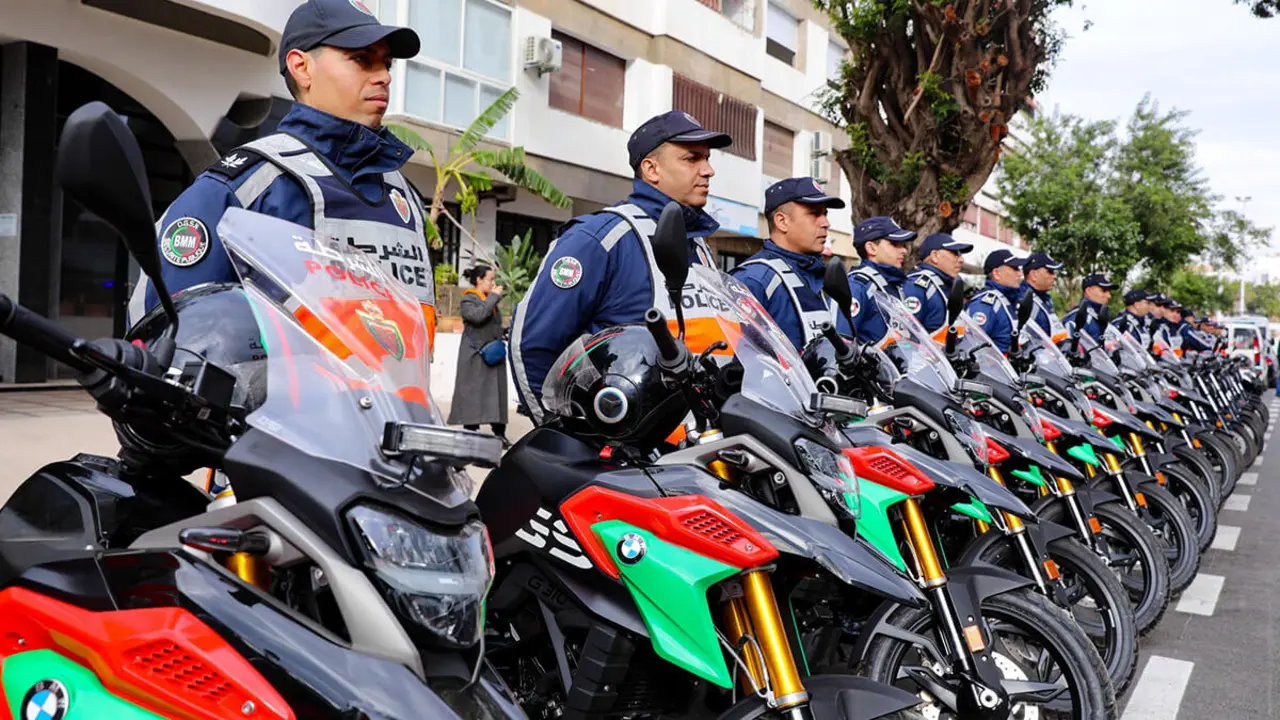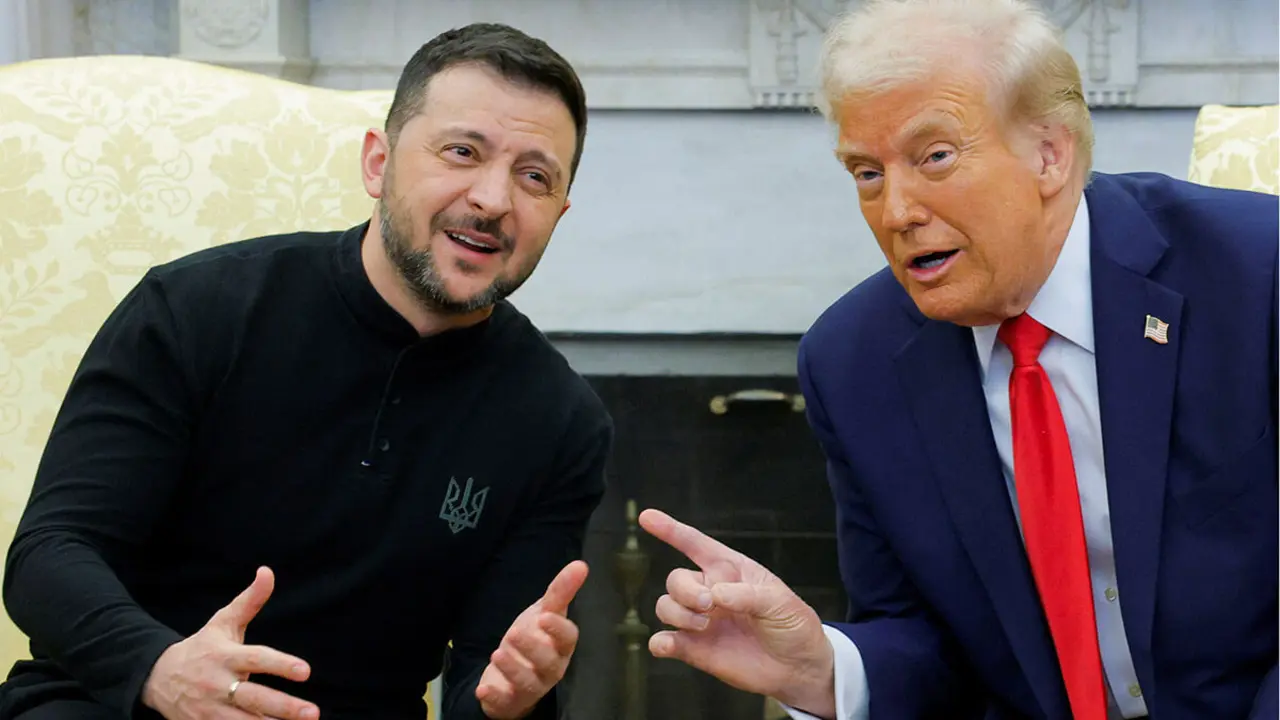A new president for Sri Lanka
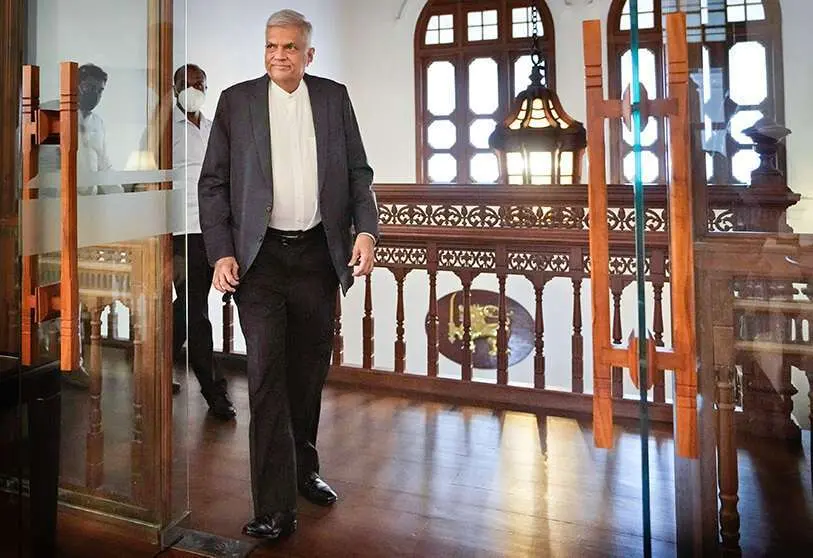
Sri Lanka. The 'Tear of India'. A small island state in the Indian Ocean whose renown on the international scene seemed, until just a few weeks ago, not to exceed the limits of tourism, tranquillity and paradisiacal coasts. A country almost unknown until the media images of hordes of demonstrators storming the Presidential Palace hit the front pages of all the media and went around the world.

For days the situation in the country has attracted the attention of most of the international community as thousands of protesters take to the streets of Sri Lanka in response to the country's worst crisis to date. Protesters take control of the Presidential Palace. The Prime Minister's residence is also stormed. Both heads of state and government - Gotabaya Rajapaksa and Ranil Wickremesinghe respectively - announce their resignation to "ensure a peaceful transfer of power". President Rajapaksa leaves the country. A state of emergency is declared.
One after the other, the Sri Lankan territory has been going through a series of turbulent events that seemed to be leading the country to an uncertain - but different - socio-political future. However, the appointment of Ranil Wickremesinghe as president, largely backed by the Sri Lanka Podujana Peramuna Party (SLPP) of which his predecessor was a member, suggests less radical changes.

Ranil Wickremesinghe, 73-year-old representative of the National Unity Party (UNP), one of the most experienced politicians on the Sri Lankan political scene, on Wednesday finally sealed his ambition to lead the small island nation after having served as head of government on five occasions, and having come close to the presidency at least seven times.
In fact, the last few weeks have given Wickremesinghe the opportunity to hold both offices. While the resignation of the then Prime Minister Mahinda Rajapaksa (Gotabaya Rajapaksa's brother) last May placed Wickremesinghe at the head of the Sri Lankan government, Gotabaya Rajapaksa's subsequent departure from the country - frightened by public discontent - has led the politician to succeed the deposed president as head of state.
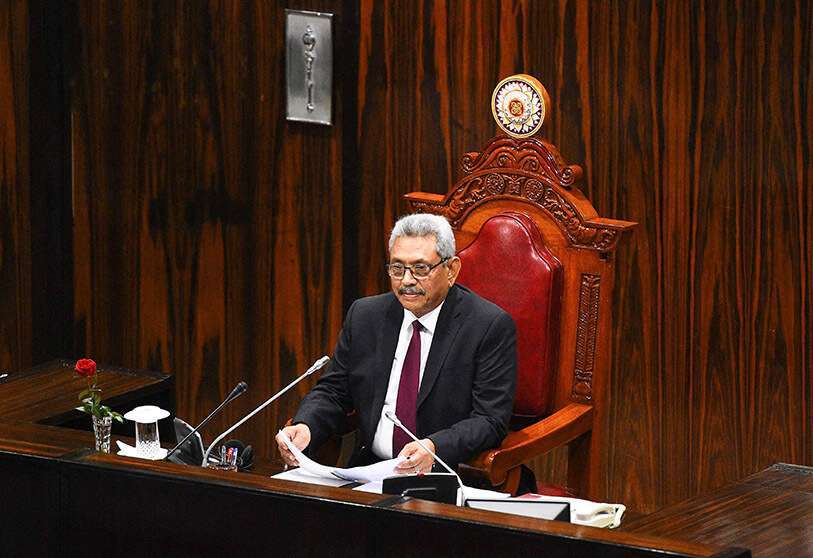
Although both Rajapaksa and Wickremesinghe announced their resignations after the 9 July storming of the presidential palace, only the Sri Lankan president completed his resignation on Wednesday, when he fled the country on a military flight to the Falkland Islands. Only for the purpose of travelling from there to Singapore. Since then, the former prime minister Wickremesinghe has taken over as acting head of state.
And so, as interim president of Sri Lanka, Wickremesinghe decreed a state of emergency in the country on Tuesday (to prevent further unrest that could jeopardise the parliamentary vote on Wednesday 20). And, also as interim president, he arrived at the Sri Lankan House to face, in a secret ballot, the candidate of the SLPP party, Dullas Alahapperuma - Wickremesinghe's main opponent - and that of the left-wing NPP coalition, Anura Kumara Dissanayake.
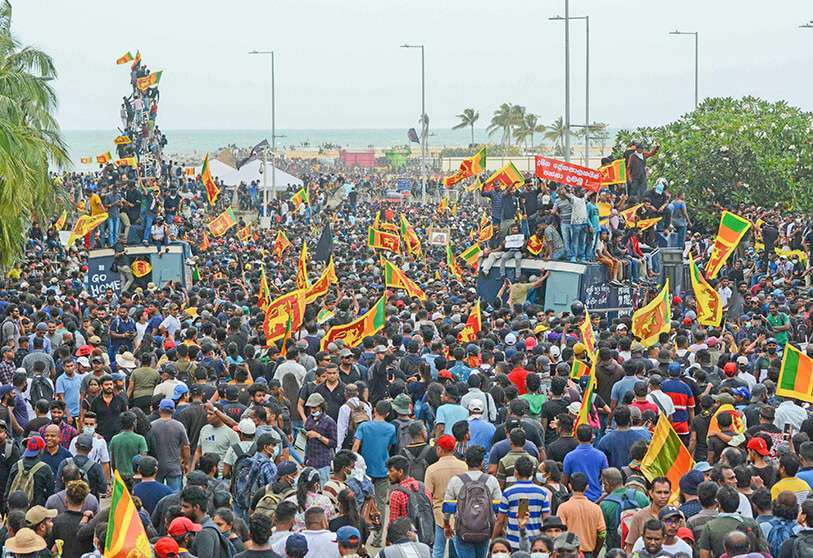
134 of the 225 parliamentarians finally endorsed Wickremesinghe as the elected successor to the deposed Rajapaksa, making the 73-year-old "eternal presidential candidate" the "de facto" president for the next two years, now in charge of resuming talks with the International Monetary Fund (IMF) on a possible bailout.
However, for protesters who have led protests for more than 100 days, Wickremesinghe's victory appears to mean the re-imposition of the same regime that dragged the country into economic collapse, and a reason to rise up again. "This is the election of 225 parliamentarians, not the election of the country," one protester told the EFE news agency.
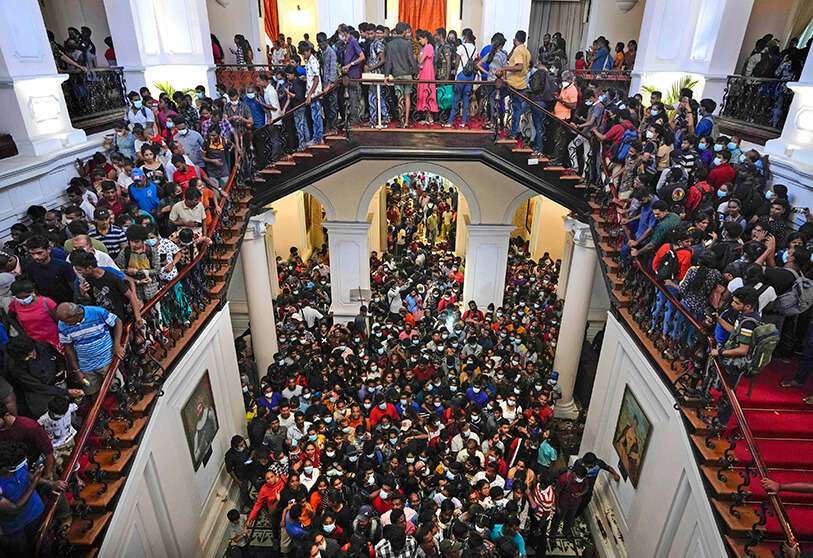
The Sri Lankan citizens' movement emerged en masse at the end of March, when thousands of people took to the streets of the small country to demand Rajapaksa's resignation over his disastrous management of the economic crisis that was ravaging the country. The worst since independence from the UK in 1948.
Defaults on international debts now exceeding US$51 billion, a drastic reduction in foreign exchange and inflation of over 55% sparked discontent among the population. But the inability to import basic goods such as food and medicine, school closures, cancellations of emergency medical procedures and bans on fuel sales to the public were the last straw.
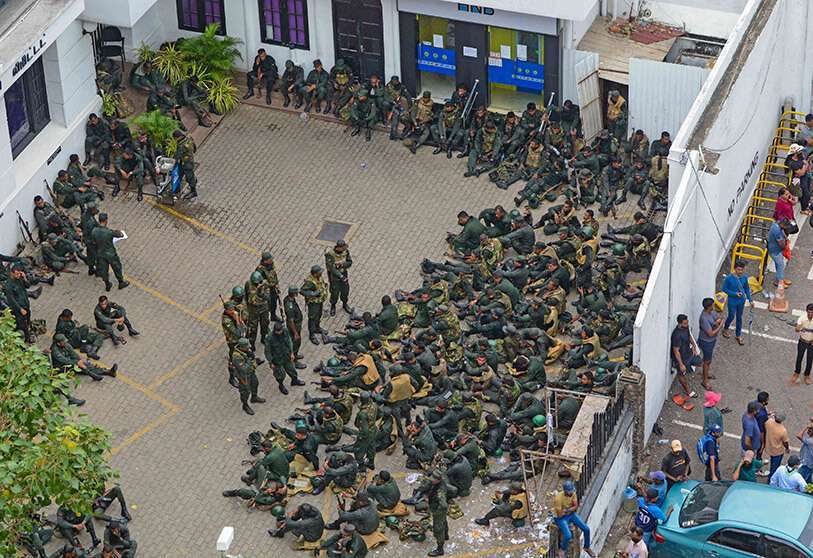
According to the Sri Lankan population, the erratic government policies have, for more than three years now, been incapable of responding to the tourism problems that caused a series of attacks at Easter 2019 and the Covid-19 pandemic. This is key in a country whose main source of income is precisely the tourism sector.
In this scenario, some of the protesters who took over emblematic places such as the Presidential Secretariat in the Sri Lankan capital of Colombo, and who managed to get Rajapaksa to flee, are now hoping to achieve the same with the newly appointed head of state, Wickremesinghe. "We now know that Wickremesinghe is smarter than Gotabaya or Mahinda Rajapaksa," explained Lahiru AM Fernando, one of the protesters who now fears the arrest of those who remain in the camps. "He has already arrested several people in the last few days. That's why we want to start our peaceful protest against Ranil again. Go home Ranil".
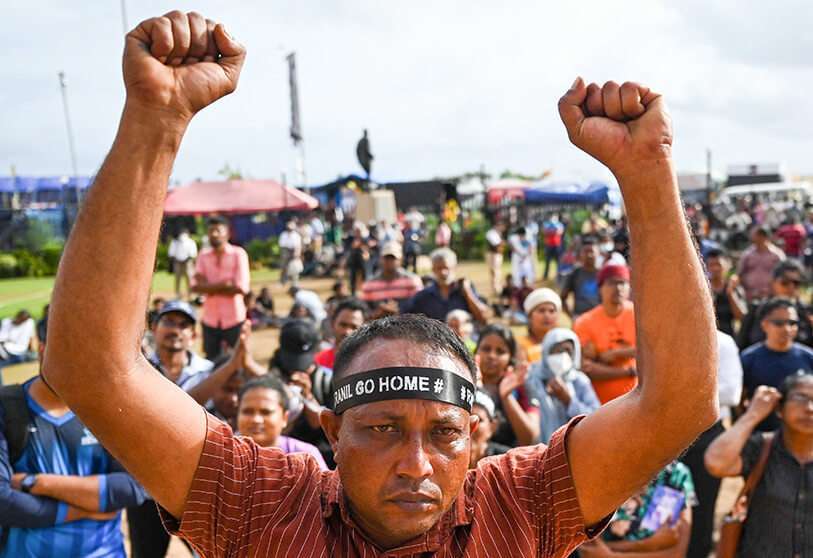
Now, as the consequences of the Russian-Ukrainian war seem to lengthen their shadow on the international stage with each passing day, fears are growing that situations like this will be repeated across the world. Especially in developing countries. "Countries with high debt levels and limited policy space will face additional pressures. We should not look too far ahead, Sri Lanka is a warning sign," said IMF director Kristalina Georgieva.
For, while Sri Lanka's upheaval is attributable to quite specific factors, such as poor management by the authorities, runaway inflation, critically declining foreign exchange and rising energy bills are common destabilising elements that the small island nation already shares with other neighbours, such as Bangladesh, Laos, Nepal and Pakistan. The result, in Georgieva's words, is an "extremely uncertain" international future.







